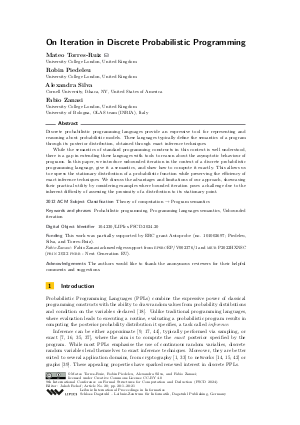LIPIcs.FSCD.2024.20.pdf
- Filesize: 0.97 MB
- 21 pages

 Creative Commons Attribution 4.0 International license
Creative Commons Attribution 4.0 International license















Feedback for Dagstuhl Publishing